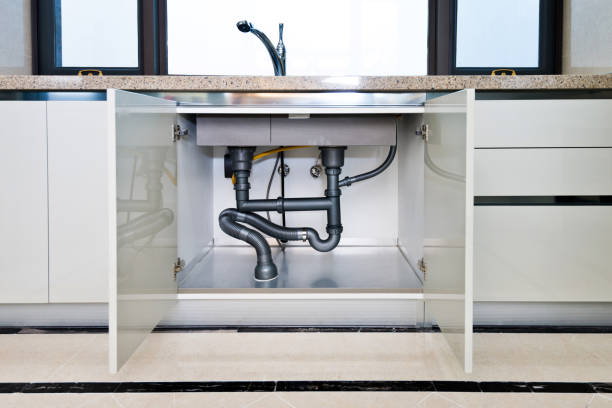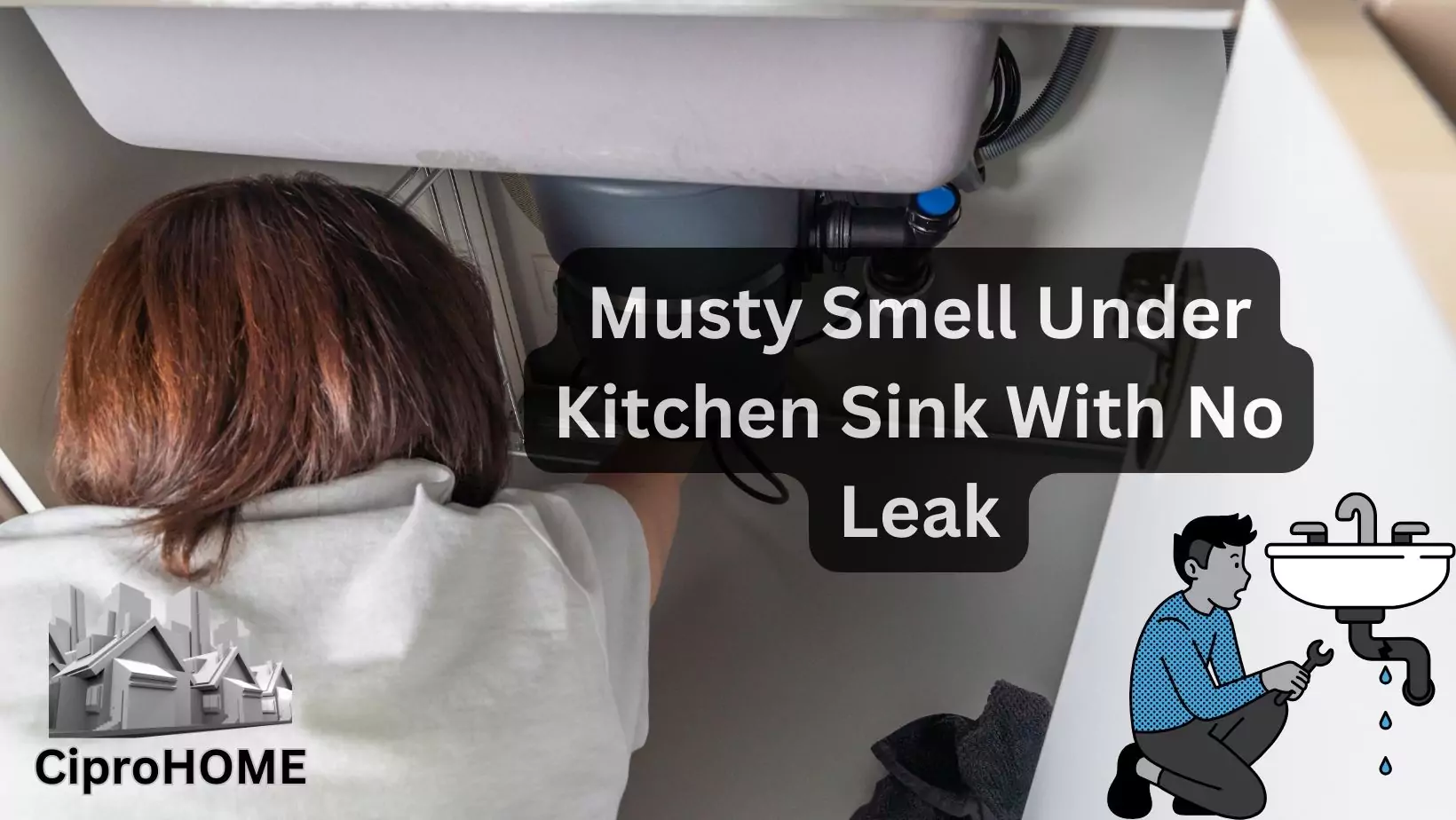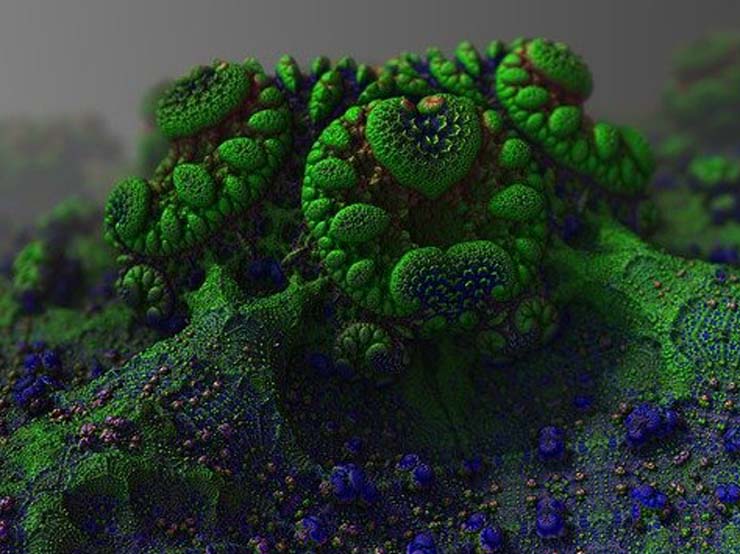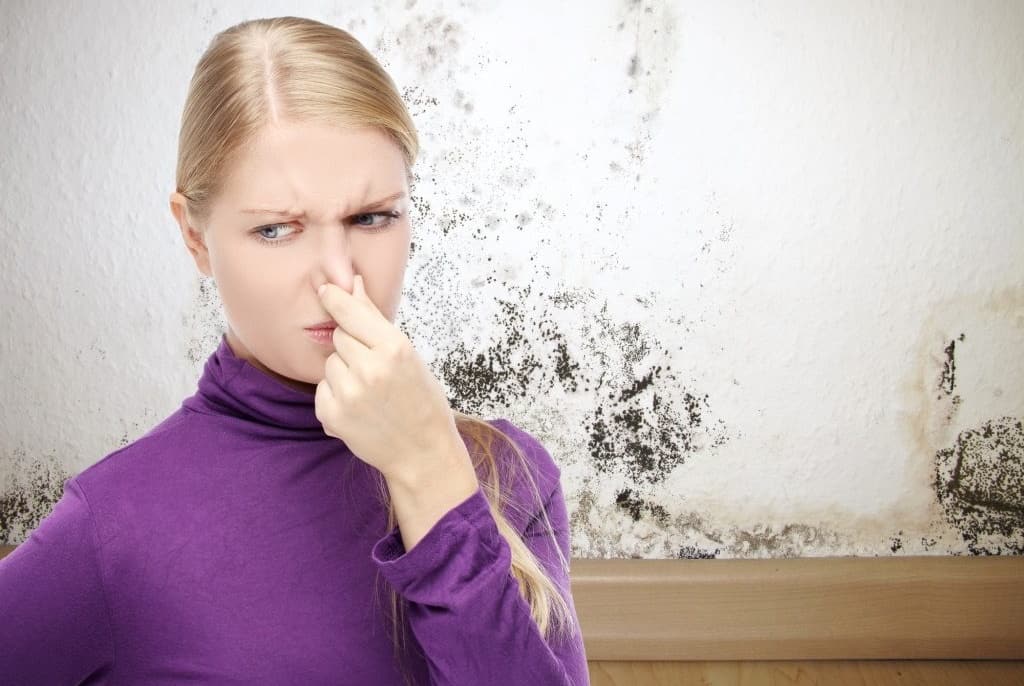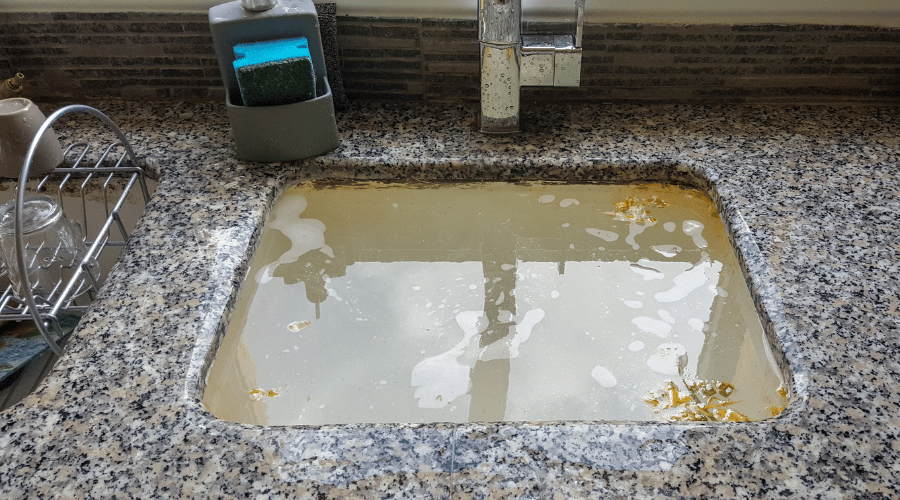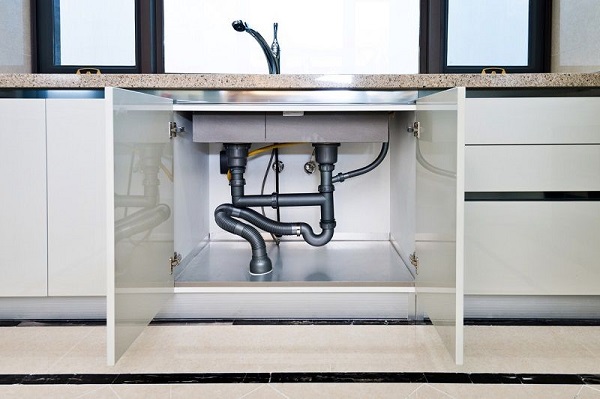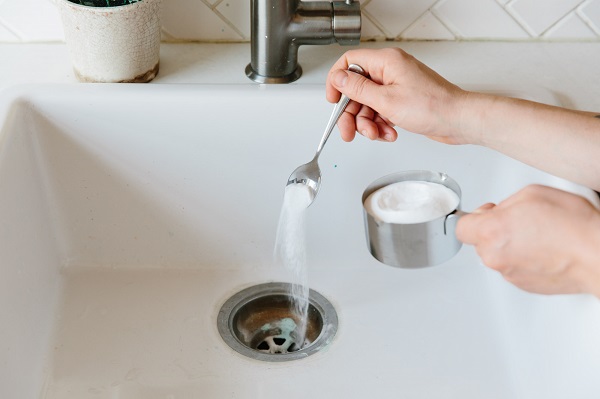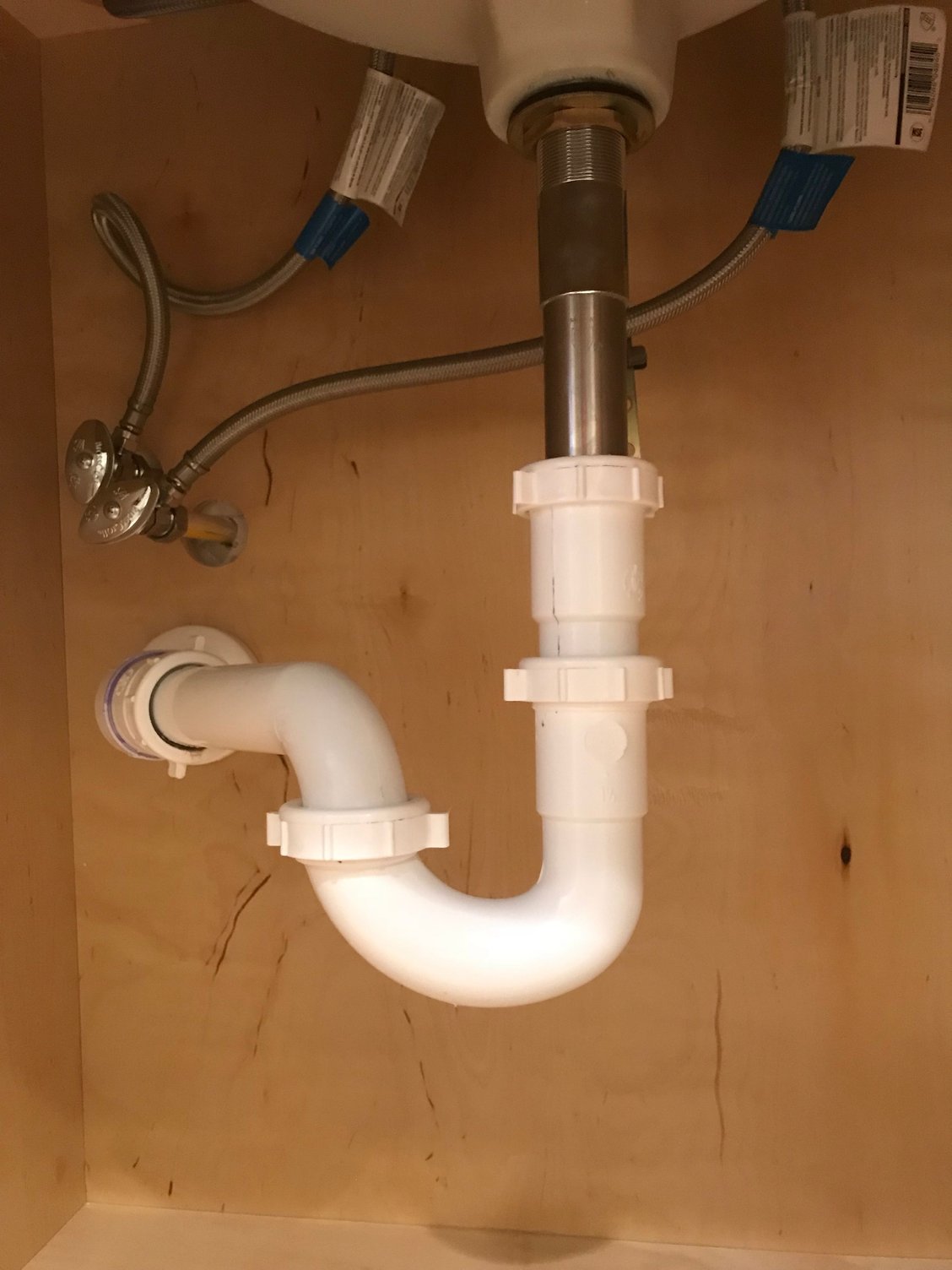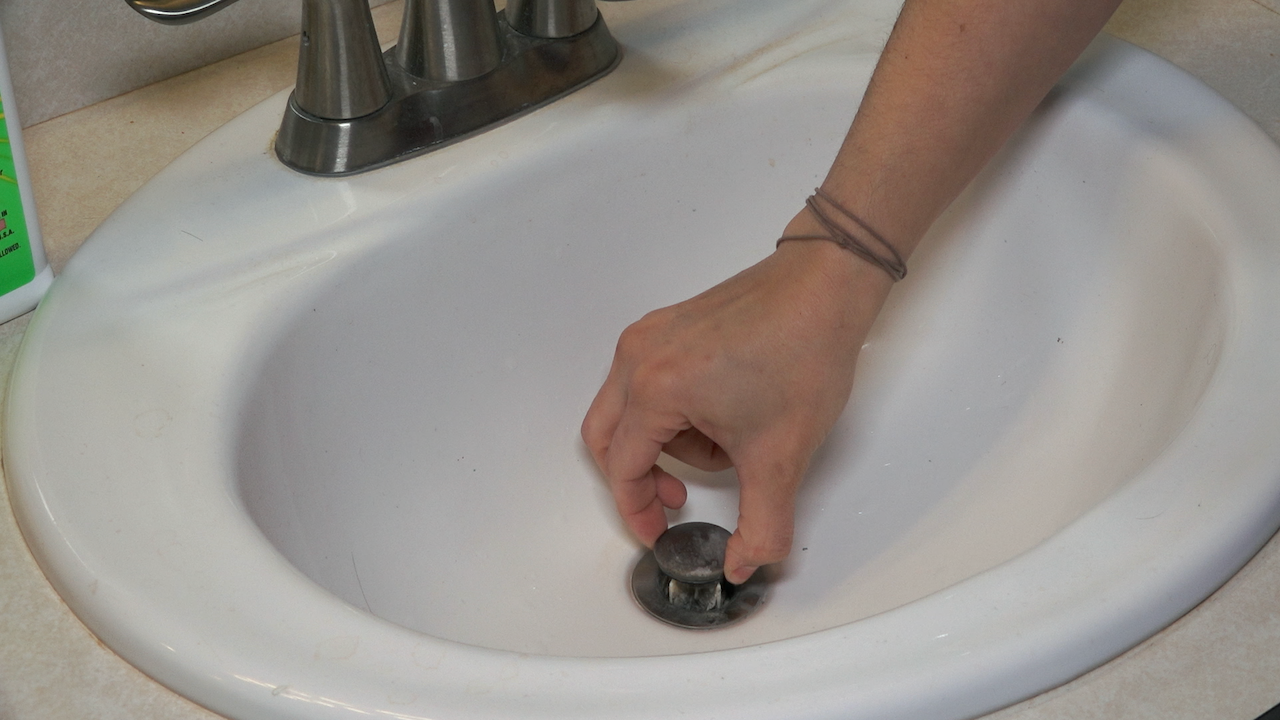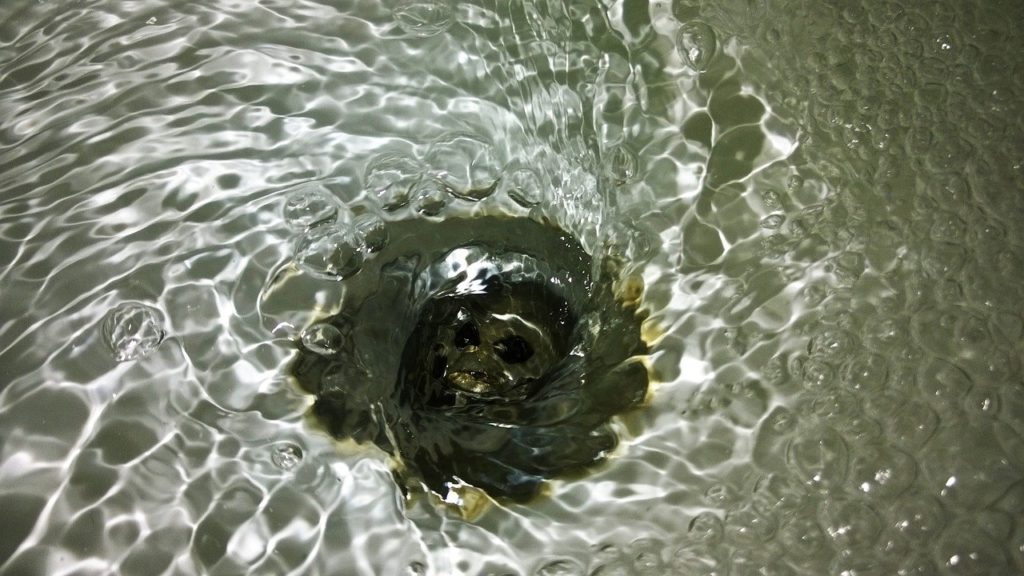If you're noticing a musty smell coming from your kitchen sink, you're not alone. This unpleasant odor can be caused by a variety of factors, some of which may require immediate attention. One common cause is the buildup of food particles and bacteria in the drain, leading to a stagnant and musty odor. This can happen if you don't regularly clean your sink or if you're not properly disposing of food scraps. Another potential cause of a musty smell is a clogged or damaged drain pipe. If there is a blockage in the pipe, water can become trapped and create a stagnant environment for bacteria to grow and produce a musty odor. Additionally, a damaged pipe can also lead to water buildup and a musty smell. It's important to address these issues promptly to prevent further damage and potential health hazards. In some cases, the musty smell may be coming from your water supply. If your sink has a separate faucet for hot and cold water, the hot water may be the culprit. This is because hot water tanks can sometimes harbor bacteria, which can cause a musty odor when the water is used. This issue can usually be resolved by flushing out the hot water tank or replacing it if necessary.1. Causes of Musty Smell in Kitchen Sink
Now that you know some of the common causes of a musty smell in your kitchen sink, it's time to tackle the issue and get rid of that unpleasant odor. The first step is to thoroughly clean your sink and drain using a mixture of hot water and soap. You can also add a few drops of essential oils, such as lemon or tea tree, to help freshen up the scent. If the smell persists, you may need to try a deeper cleaning method using baking soda and vinegar. Simply pour a cup of baking soda down the drain, followed by a cup of vinegar. Let the mixture sit for about 15 minutes, then flush it with hot water. This will help break down any buildup and eliminate the musty smell. In more severe cases, you may need to use a commercial drain cleaner or call a professional plumber to address the issue. Be sure to follow the instructions carefully and avoid using harsh chemicals that can damage your pipes.2. How to Get Rid of Musty Smell in Kitchen Sink
If you prefer to use natural and homemade solutions, there are a few DIY methods you can try to get rid of the musty smell in your kitchen sink. One popular method is using a combination of salt, baking soda, and vinegar. Mix equal parts of salt and baking soda, then pour it down the drain. Follow it up with a cup of vinegar and let it sit for about 10 minutes before flushing it with hot water. You can also try using hydrogen peroxide to eliminate the musty smell. Mix equal parts of hydrogen peroxide and water, then pour it down the drain and let it sit for about 30 minutes. After that, flush it with hot water. This method can help kill bacteria and remove any lingering odors. Another DIY solution is using citrus peels, such as lemon or orange, to freshen up the scent of your kitchen sink. Simply place a few peels in the drain and run hot water over them. This will release a pleasant scent and help eliminate any musty odors.3. DIY Solutions for Musty Smell in Kitchen Sink
Aside from the causes mentioned above, there are a few other common reasons why your kitchen sink may have a musty smell. One of them is a faulty or poorly installed P-trap. The P-trap is a curved pipe underneath your sink that is meant to hold water and prevent sewer gases from entering your home. If this is not functioning properly, it can lead to a musty smell. Another potential cause is a damaged garbage disposal. If you have a garbage disposal in your sink, food particles and debris can get stuck and rot, creating a musty odor. It's important to regularly clean and maintain your garbage disposal to prevent this issue. In rare cases, the musty smell may be due to a sewage leak. If you notice a strong, foul odor coming from your sink, it's important to call a professional plumber to inspect and fix the issue immediately.4. Common Reasons for Musty Smell in Kitchen Sink
The best way to deal with a musty smell in your kitchen sink is to prevent it from happening in the first place. Here are a few tips to help keep your sink smelling fresh and clean:5. Tips for Preventing Musty Smell in Kitchen Sink
If you prefer to use natural and chemical-free solutions, there are a few remedies you can try to get rid of the musty smell in your kitchen sink. One option is using a mixture of salt, baking soda, and vinegar, as mentioned earlier. Another natural remedy is using a combination of lemon juice and borax. Mix equal parts of both ingredients and pour it down the drain. Let it sit for about 30 minutes before flushing it with hot water. You can also try using a mixture of equal parts of water and apple cider vinegar. Pour it down the drain and let it sit for about 30 minutes before flushing it with hot water. This method can help neutralize odors and kill bacteria.6. Natural Remedies for Musty Smell in Kitchen Sink
If you've tried all the DIY methods and the musty smell in your kitchen sink persists, it may be time to call a professional plumber. They will be able to inspect your sink and drain and determine the cause of the odor. They can also use specialized tools and techniques to thoroughly clean and eliminate any buildup or blockages. In some cases, a professional plumber may need to replace damaged pipes or install a new P-trap to fix the issue. While this may be a more costly solution, it can help ensure that the musty smell does not return in the future.7. Professional Solutions for Musty Smell in Kitchen Sink
To prevent a musty smell from coming back, it's important to regularly clean and maintain your kitchen sink. This includes cleaning the sink and drain at least once a week, as well as properly disposing of food scraps and running hot water after each use. You should also pay attention to any signs of damage or clogs and address them promptly to prevent further issues. It's also a good idea to have your plumbing system inspected by a professional every few years to catch any potential problems before they become major and costly repairs.8. How to Clean and Maintain Kitchen Sink to Avoid Musty Smell
In most cases, a musty smell in your kitchen sink can be resolved with simple cleaning and maintenance methods. However, there are some signs that may indicate a more serious issue that requires immediate attention from a professional plumber. These signs include:9. Signs of a More Serious Issue Causing Musty Smell in Kitchen Sink
Regularly checking and addressing a musty smell in your kitchen sink is important for several reasons. First and foremost, a musty smell can be unpleasant and make it difficult to use your sink and kitchen. Additionally, it could be a sign of a more serious plumbing issue that could lead to costly repairs if left untreated. Addressing a musty smell promptly can also help prevent health hazards, such as the growth of harmful bacteria and mold in your sink and drain. By regularly cleaning and maintaining your kitchen sink, you can ensure a clean and healthy environment in your home. In conclusion, a musty smell coming from your kitchen sink can be caused by a variety of factors, including food buildup, damaged pipes, or a faulty P-trap. It's important to address the issue promptly to prevent further damage and potential health hazards. By following the tips and solutions mentioned in this article, you can effectively get rid of the musty smell and keep your kitchen sink smelling fresh and clean. Remember to regularly clean and maintain your sink to prevent the issue from recurring, and don't hesitate to call a professional if you notice any signs of a more serious issue.10. Importance of Regularly Checking and Addressing Musty Smell in Kitchen Sink
How to Get Rid of the Musty Smell Coming From Your Kitchen Sink

Understanding the Cause of the Musty Smell
 Dealing with a musty smell coming from your kitchen sink can be a frustrating and unpleasant experience. The constant presence of a musty odor not only affects the air quality in your home, but it can also be a sign of potential plumbing issues. To effectively get rid of the smell, it's important to understand the root cause.
The most common cause of a musty smell coming from your kitchen sink is the build-up of bacteria and mold in the drain pipes. This can happen if food particles, grease, and other debris get stuck in the pipes and create a damp environment for bacteria and mold to grow. The musty smell is a result of these microorganisms breaking down the organic matter in the pipes.
Dealing with a musty smell coming from your kitchen sink can be a frustrating and unpleasant experience. The constant presence of a musty odor not only affects the air quality in your home, but it can also be a sign of potential plumbing issues. To effectively get rid of the smell, it's important to understand the root cause.
The most common cause of a musty smell coming from your kitchen sink is the build-up of bacteria and mold in the drain pipes. This can happen if food particles, grease, and other debris get stuck in the pipes and create a damp environment for bacteria and mold to grow. The musty smell is a result of these microorganisms breaking down the organic matter in the pipes.
Steps to Eliminate the Musty Smell
 To eliminate the musty smell from your kitchen sink, follow these steps:
1. Clean the Drain Pipes
The first step is to clean the drain pipes thoroughly to remove any build-up of food particles, grease, and other debris. You can use a mixture of hot water and dish soap to flush out the pipes. For tougher build-up, a mixture of baking soda and vinegar can be effective in breaking down the debris.
2. Use a Drain Cleaner
If cleaning the drain pipes with hot water and soap doesn't completely eliminate the musty smell, you may need to use a drain cleaner. Look for a cleaner specifically designed for kitchen sinks and follow the instructions carefully. Be sure to wear gloves and protective eyewear when handling the cleaner.
3. Run Hot Water
After using a drain cleaner, run hot water down the drain for a few minutes to flush out any remaining debris and cleaner. This will also help to kill any remaining bacteria and mold in the pipes.
4. Use Natural Deodorizers
To keep your kitchen sink smelling fresh, consider using natural deodorizers such as lemon or orange peels, baking soda, or white vinegar. These can be placed in the drain and left overnight to absorb any odors.
To eliminate the musty smell from your kitchen sink, follow these steps:
1. Clean the Drain Pipes
The first step is to clean the drain pipes thoroughly to remove any build-up of food particles, grease, and other debris. You can use a mixture of hot water and dish soap to flush out the pipes. For tougher build-up, a mixture of baking soda and vinegar can be effective in breaking down the debris.
2. Use a Drain Cleaner
If cleaning the drain pipes with hot water and soap doesn't completely eliminate the musty smell, you may need to use a drain cleaner. Look for a cleaner specifically designed for kitchen sinks and follow the instructions carefully. Be sure to wear gloves and protective eyewear when handling the cleaner.
3. Run Hot Water
After using a drain cleaner, run hot water down the drain for a few minutes to flush out any remaining debris and cleaner. This will also help to kill any remaining bacteria and mold in the pipes.
4. Use Natural Deodorizers
To keep your kitchen sink smelling fresh, consider using natural deodorizers such as lemon or orange peels, baking soda, or white vinegar. These can be placed in the drain and left overnight to absorb any odors.
Preventing Future Musty Smells
 To prevent another musty smell from developing in your kitchen sink, it's important to maintain good habits when using your sink. Avoid pouring grease and oil down the drain, and regularly clean out food scraps from the sink. You can also run hot water down the drain after each use to prevent build-up.
By following these simple steps and maintaining good habits, you can effectively get rid of the musty smell coming from your kitchen sink. Remember to regularly clean and maintain your sink to prevent any future odors from developing.
To prevent another musty smell from developing in your kitchen sink, it's important to maintain good habits when using your sink. Avoid pouring grease and oil down the drain, and regularly clean out food scraps from the sink. You can also run hot water down the drain after each use to prevent build-up.
By following these simple steps and maintaining good habits, you can effectively get rid of the musty smell coming from your kitchen sink. Remember to regularly clean and maintain your sink to prevent any future odors from developing.





